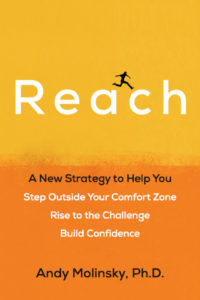Every now and then I visit an old friend of mine at his Fortune 100 corporate headquarters – and every time I do, I’m struck by the incredible amount of people he knows and is seemingly friends with. He glides through the hallways hobnobbing with everyone – from executives, to managers, to his employees, and to the staff at the corporate cafeteria.
And it got me thinking: many of us spend more of our waking hours with co-workers and colleagues than we do with family and friends. Just like for my friend, these relationshipsare important – for our wellbeing and also to get things done and progress at our jobs. But how do you get from being on a simple hello basis in the hallway to a real relationshipwith someone at work you can trust and rely upon? I sat down with my uber-connected friend and we came up with the following framework:
Stage 1 is the stranger stage. It is your first conversation with your boss, or with colleagues or teammates. It’s you making small talk with someone you have never met before at a networking event or at a company fundraiser. The goal here is to bring the relationship (if you can call it that at this point) from (a) complete strangers to (b) strangers who have at least exchanged a few words with each other… and then, ideally, to (c) strangers who have shared an actual conversation. You’re setting the groundwork for a potential future relationship by showing that you’re the type of person worth getting to know.
Stage 2 is the acquaintance stage. At this point you do know each other: but not well. You’ve spoken a few times, know each other’s names (or should at this point), and the purpose of is to become even closer acquaintances. If things are clicking, the goal here is to start to share more personal information, discover more things you have in common (to further build up the relationship), and perhaps, actually schedule a time to sit down for a planned interaction – like lunch or coffee.
In many cases, professional relationships stop at the acquaintance stage. However in some cases, they transform into Stage 3 – the friend stage.
At Stage 3, you’re starting to get together outside of work, perhaps even with families, and your conversations feel more personal than they did at earlier stages of the relationship. You might even move freely between work and non work-related topics, and feel comfortable enough to confide in your colleague about problems you’re having at work – or perhaps even at home.
Think about your relationship portfolio at work. What does it look like? Do you have the balance you need? Is it working for you? Are you overly weighted in one direction or the other?
Originally published on Inc.com
 AVAILABLE NOW
AVAILABLE NOW
Reach A New Strategy to Help You Step Outside Your Comfort Zone
According to Andy Molinsky, an expert on behavior in the business world, there are five key challenges underlying our avoidance tendencies: authenticity, competence, resentment, likability and morality. Does the new behavior you’re attempting feel authentic to you? Is it the right thing to do? Answering these questions will help identify the “gap” in our behavioral style that we can then bridge by using the three Cs: Clarity, Conviction, and Customization. Perhaps most interesting, Molinsky has discovered that many people who confront what they were avoiding come to realize that they actually enjoy it, and can even be good at it.